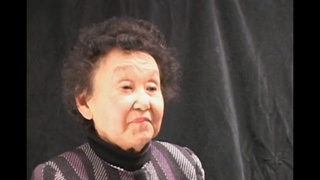Interviews
Memories of Poston
Well, there were a lot of scorpions, which to this day I think they’re the worst. I can hold a snake, it doesn’t bother me as long as I know it’s a safe snake and I can hold spiders I take outside, but just thinking of scorpions, it always gave me the creeps. They had some terrible storms, so I remember how hot it was and also the fact that the roofs would, they had these whirlwinds and the roofs would fall, they would pull the roof off. Yeah, I went with a couple of boys to watch a couple of storms. Dumb, you going to watch the roof go off.
Date: August 27, 2012
Location: Washington, US
Interviewer: Cindy Nakashima, Emily Anderson
Contributed by: Watase Media Arts Center, Japanese American National Museum with support of NITTO Tires Life History Project. Courtesy of the USC Hapa Japan Database Project.








